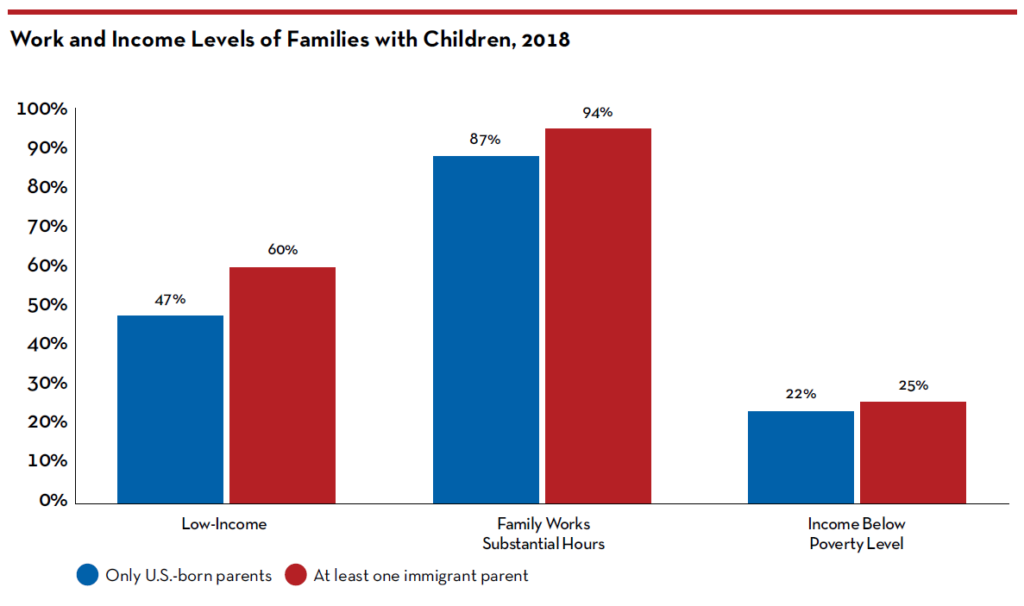
Download this handout: Immigrant Children and Families
More than 78,000 children in Arkansas have at least one parent who was born abroad. That’s about one in 10 children. While the overwhelming majority of Arkansas’s children in immigrant families are U.S. citizens (about 83%), huge gaps in their families’ economic security persist.
That’s the case even though children in immigrant families are more likely to have parents who work substantial hours. [See chart] Despite that fact, about 60% of Arkansas’s kids in immigrant families live in households with low incomes, about 13 percentage points higher than those who have two U.S.-born parents. Most children in immigrant families in Arkansas are Hispanic/Latino, and Hispanic* children in Arkansas have a poverty rate that’s three times that of non-Hispanic White kids.
These gaps in economic security are made worse by policies that keep young people and their parents from participating fully in our economy, driving down wages for families in all ethnic and racial groups. We need all children in Arkansas to reach their full potential if we are to reach ours as a state.
*Hispanic is the term used by the U.S. Census Bureau’s American Community Survey, but not all children identified as Hispanic in the survey live in immigrant families.
What to Ask Candidates
- What are your thoughts on the Deferred Action for Childhood Arrivals (DACA) policy, which protects young immigrants from deportation and allows them to work lawfully in the United States?
- Many working Arkansans, especially immigrants, are victims of “wage theft,” or the denial of wages owed an employee. What are your thoughts on legislation that would require employers to issue a paystub to workers, a policy in place in most states, but not Arkansas?
- Under federal law, adults who were born in the Republic of the Marshall Islands, who live and work lawfully in Arkansas, aren’t eligible for programs like SNAP (food stamps). How can Arkansas work to address disparities in family economic security?
Download this handout: Immigrant Children and Families

You must be logged in to post a comment.